Premium Only Content
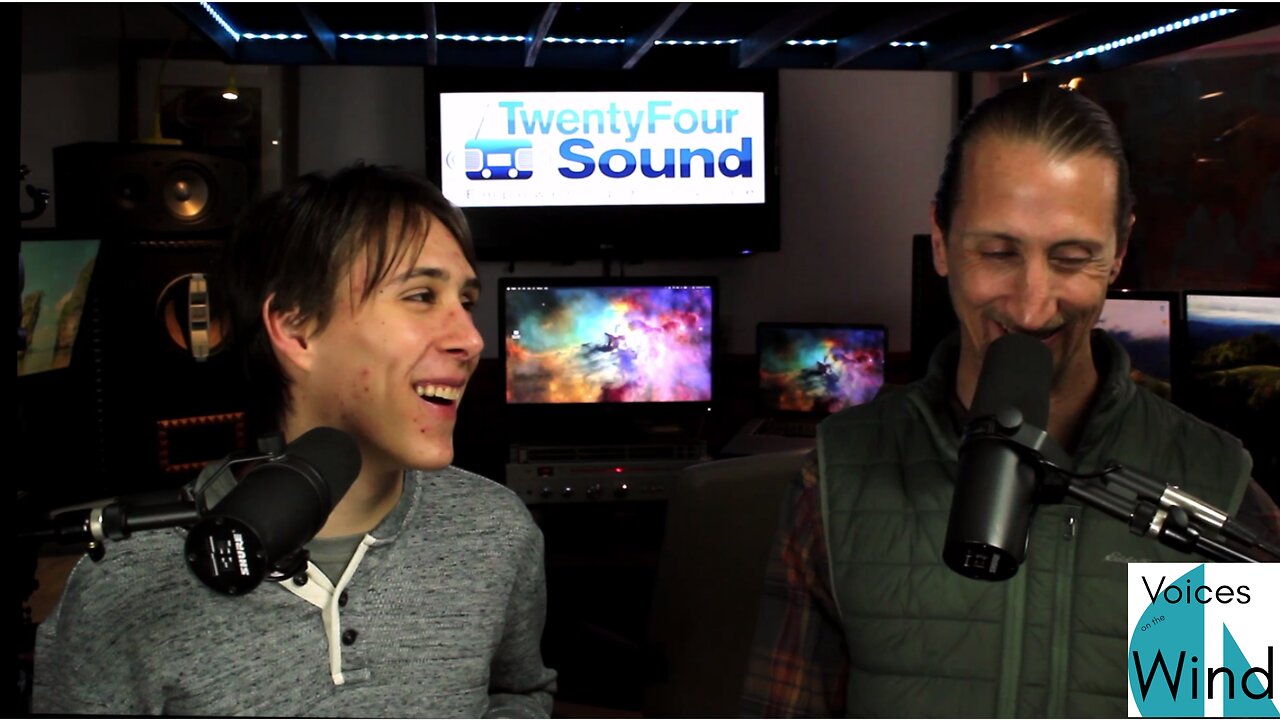
VOTW_001-Showreel
Super excited to share season one with you. We put together a little showreel, you know, like walking through Costco and getting delicious samples.
Buen provecho and happy sailing my friends!
-Toby
Join us at votw.substack.com
Transcript below:
So Voices on the Wind. Hey, we have got a great show for you. This is a bunch of snippets. You know, when I started recording this, I think I was most excited for this episode. I don't know why,
but something about just putting everybody's little quotables all in one episode is super fun to me. So that is what we're going to do in this episode. And we have an email list that I want to promote for a second. Here's our sponsor promo email list. Do you want to tell us about that? It's at VOTW.com.
You don't know that. Yeah. Well, pretty much we're just going to be sharing ideas. Not ideas. We're just going to have information for the next shows. When the show comes out. Yeah, the show comes out. Anything. Just going to share some things that hopefully will inspire and help you with your business.
Yeah, stuff I'm learning, maybe stuff you're learning, Maverick. Yeah, we'll see if we can get you on there. We'll see. Okay, so that's our spicy ad. Right to the meat here. Okay, so our first episode is John and Renee Yellenick. I really enjoy talking with John and Renee.
We both were in that interview, although I think it's my face. Sorry about that. You want to tell us about that one? Yeah, well, they, you know, they went from broke and then a new, they weren't here. And now they're major entrepreneurs and then sought after. And, and yeah, they are on double secret probation,
which you'll figure out what that is in the episode. And a lot of people, that is great. And they are super happy just staying in a franchise and, you know, running the business model. I was not because I had ideas and there were things that I wanted to do.
And so I would do them and then I would be in trouble. She was on double secret probation so many times. We were like almost like in default. Yeah, we were in trouble a lot. Yeah, I liked Renee's version of double secret probation. I did try to press her for that.
She didn't really qualify what exactly double secret probation, a word I cannot say. Apparently, I'd like not to be on it. Whatever it is. But I love that they were just so entrepreneurial that even... uh what's the word i'm looking for uh franchises were difficult for them because
she was just like i'm gonna do it my way and um i think that's a really good quality yeah that's not always valued in our society um or overvalued anyways i won't get into the psychology of that um Moving on to episode two, the Yellow Nicks were so interesting. We have them twice. The second one.
Can you tell us about that one? Can you tell us about that? Well, then that was, you know, they're going to make their new theater. Then it was going to come out. And, of course, COVID hit. And so this is them on what they did. We were... getting ready to open.
We were like in the last few months of construction and COVID happened. So yeah, which was crazy, crazy times. You know, this was absolutely like the most terrifying thing for us. Great to see how they moved past that and turned COVID into something that actually made their business even better. I thought that was cool.
And so we got Tate next. What do you think about him? I really like Tate Schrock because super, super smart. And the guy is just a couple of years older than you. I mean, he is fresh out of high school. and going straight to space. I personally resonated with this because I would love to go to space.
I mean, if I had one of my, you know, if there's a moon dream, it would literally be to put my feet on the moon. But Tate here, he is throwing balloons up into near space. Let's hear about that.
What we were planning on didn't end up happening because it was problems after problems. And then we noticed, oh, well, we can't really do it this way. So we ended up slimming down the package even farther than what we had anticipated.
It's too big.
Too big, too heavy.
Too heavy. But you didn't know it was too heavy because you had to invest in helium. And you're probably not just throwing helium in it like, no problem, right? That's correct. So...
Calculations are a bit off. Expectations were a bit high. But at the same time, by the end of the day, we still had a balloon in the air.
Cool to see how Tate did all those crazy things. I mean, I don't even know. Still amazing how he took that thing apart and turned it, reverse engineered it. That's just amazing. So next we got Kishore. Yes, Kishore Kudru. I had to ask him specifically how to say his name because I am not of Indian descent.
He's just another really smart guy. And Kishore, he came to the States from India and has this whole story about how he ended up in Cheyenne, Wyoming, of all places from India, Kishore. In the midst of that, he started a number of businesses. In fact, he's starting this big complex here in town.
But we catch him in a moment where he is starting up a franchise called Cold Stone Creamery. And they are underwater as far as time and his whole family's involved. And they were burning the candle at both ends. Here's how that felt for Kishore.
So it was me and my wife, everybody in my family, I put them behind the bar. And my wife was nine months pregnant with twins. She was doing billing. Oh my gosh. It was a tough month.
I will not forget that. Yeah, I've really enjoyed Kishore. Just enjoyed sitting down with him. I met his family. He's got a great family. Just really smart kids, wonderful wife, and really impressed how he pulled his family together. This theme of family... Helping business owners succeed comes up over and over.
And I just continually hear how people throw their families under the bus. But these successful business owners are working with their family to be successful. So Kishore is just one more of those. From there, we go to Neil Smazna. Now, Neil, he didn't even intend to be an entrepreneur. Yeah. Yeah, she's going to be a teacher.
She's like, I'm just going to teach. And even when she started it, she wasn't actually really going to make a business. She wasn't even going to charge anything. But in this episode, you kind of just see how she charges in and she then turned it from just a fun hobby to actual business.
So you didn't expect to make any money with it. Oh gosh, no, no, no.
We literally never set, we never set a profit goal. We never had.
Great to see how Neil takes her, like her love and actually turns that into something that's making her profit and, and helping the community. I thought that was, I thought that was really cool. And, and so we got next is Steven. Steven, what do you think about Steven? Yeah. Stephen was, Stephen is what we call an intrapreneur.
He did, he definitely did start, kind of started something. He didn't start the organization. He is a nonprofit called Hunting with Heroes. What's interesting, however, is he took it from something that he, how do I say this? He ramped it up significantly. Yeah. And it's just hearing his passion, the way he works, the way he thinks,
as well as his mental health crisis in the middle of that and how he utilized that to drive him somewhere. Really good stuff.
I was very suicidal. I got to join a hunt. And as I started to think about it, I realized that there was far more love going on. And I know I feel like a closet hippie when I say that, but... I really want to portray that idea to these guys and these gals that people you
don't even know love you, and they want to keep you here. You're important to them. Sorry, I'll get choked up. Yeah.
Stephen, thank you for that. I've really enjoyed that conversation with you and your friendship and just taking a moment to stop and talk together. That was fun. I'm also, Stephen and I have talked about working on his podcast, who he's starting. So let's go, Stephen. Come on. Next up is Cody and Samantha Davis.
Local entrepreneurs who, this was interesting. I won't say it. Go ahead. Yeah, no, yeah, no. No, I mean, they had a passion for fruit and for farming, but wanted to bring that here. But it's kind of their journey of like, how do you bring it?
And realizing that it's actually a heck of a lot harder than we all thought it was. So here's how they get through all those struggles and made it work. Like we're like ready, like gung ho, like let's put up this shed and we're going to like, you know, it's going to be great.
It's like a small little thing.
Yes. Yeah.
And we were, he started building the shed and I'm like posting on Facebook and doing all these things like grand opening. This is the day that we're opening and we were so excited, you know, and. We don't have a phone number or anything, a website or anything yet.
And my mother-in-law gets a call from the city and she's like, you guys aren't opening. Super cool to see then just their grit and then still keeping family involved. I just, that's amazing. Really helping their kids, but also giving them something to inherit and to really work on the business.
I'm really glad they're here bringing us that good fruit. So next we got Denise. Denise, what do you think? Well, Denise Patton was an artist. And I'm always interested in art and art and business and essentially how you make it as an artist. I think there's a piece of me, especially when I was younger,
that was trying to figure that out. And I still am. And I feel like you don't have to be broke as an artist. I just don't always know how to do it. In fact, my business is kind of working with artists to help them, you know, I mean, they're Anyways, I'll stop. I'll stop that.
It's just very curious to me. And she is successfully selling art. And I was just, how does she think? What does she do? And she's just really interesting and had some very good quotables, some good thoughts. Here's her, however, on some of her struggles in her journey. She almost didn't make it.
And I understand health crises, anxiety, depression. I understand it very well. It was at one time my answer by not doing anything, by staying up for essentially weeks at a time where I could only sleep for 45 minutes at a time. Hey, Denise, thank you again for that.
I've really enjoyed that and I appreciate your help along this process in building the podcast. Next is Brian Gross. Now, Brian was one of the first people to say yes to interview on this podcast. And I'm just so thankful to him. He is currently traveling the world internationally, helping internationally with business.
And it's no surprise because he has such a wealth of experience for decades. Really good at patents and what true wealth is. Do you have any other thoughts? yeah no yeah i mean that's that's pretty much it yeah he's really good uh made
really good connections and kind of teaches you on like yeah i feel like i learned a lot on like how how like what are the things you need to know like internationally and especially in the world of patents and all that crazy stuff how to make your own own wealth that that was super cool
our patent and trademark is one of the founders did one of the smartest things we ever did because it creates true wealth. And that has made us such a different country because you can actually have a good idea. You can lock up that good idea for 17 to 20 years, like with the utility patent,
and then it becomes public knowledge. But it allows you to invest, get it back what you invested in on IP. I mean, on your investment. So you get a chance to get it back. And it also creates competition. So being able to create the wealth like that is massive. And it changed our whole country.
Now the world's adapted our system and we've kind of combined it all together now. But the trademark patent process is amazing for creating wealth, real wealth.
It's super cool to see how Brian Gross really just climbed the ladder of success, really just super good with people and had a lot of really good thoughts about future generations and how to do patents. Yeah. And yeah, I think Mona is pretty excited. I thought she was pretty good. What do you think? Mona Gamboa.
Mona, she is also a, what do you call it, a patentee? Patentor. A patenter. Not a patentee. You're a patentor. She holds a patent. And, you know, one of what was inspiring, this is not about the podcast. I don't even know if we talk about it. We don't talk about it in the podcast.
But she helps students get into Ivy League schools all the time. That's kind of like her side gig. I'm like, you're running a software company That is extremely successful. And she's like, you know, on the side, I have time to, well, interview for podcasts and help soon. So just really good heart.
And this is a story about how she built her business. She was a technical founder. Technical founders... technically, are very good at the technical side, obviously, but sometimes the business skills are hard to learn. And she really divides those two and makes those very clear and talks about a time where she almost,
almost ate it and owed the IRS a significant number of money. Here's Mona Gamboa. So I was like, okay, what kind of software do I want to write? So... dreamed about it quite a bit and thought about it. And I thought, I'm going to build a really cool calendaring system, calendaring.
And at that time, there was no big calendars out there. And I thought, oh, this is great. So I had this whole design. I built this really cool calendaring. You could share your calendar. You could all the things you can do today.
And the day, the month I was ready to release it, Google Mail came out with Google calendars. Oh, my gosh. The month. Mona, thank you so much for taking the time. And I'm really looking forward to this. I'm really looking forward to this season and getting all of these episodes to y'all. Yeah, thanks for joining us.
And yeah, I hope you all enjoy all those episodes and I'll help you on your journey. And happy sailing. Happy sailing. Is that it? Yes. Yes, until then. Happy sailing.
Happy sailing
-
 LIVE
LIVE
Lofi Girl
2 years agoSynthwave Radio 🌌 - beats to chill/game to
322 watching -
 4:23:47
4:23:47
MissesMaam
13 hours ago*Spicy* Friend Friday with Mally_Mouse and Friends!! 💚✨
328K19 -
 2:05:09
2:05:09
TimcastIRL
14 hours agoRIOTS Leftist ATTACK ICE, Tear Gas Deployed, Feds Ordered To IGNORE CA Law, CIVIL WAR! | Timcast IRL
367K329 -
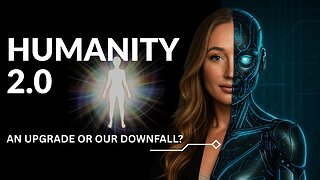 15:57
15:57
Robbi On The Record
1 day ago $9.76 earnedTranshumanism: Are Humans Becoming Obsolete? Neuralink & CRISPR explained
67K24 -
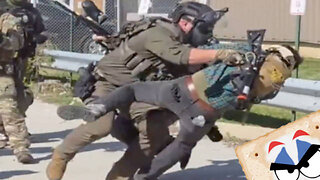 2:22:21
2:22:21
TheSaltyCracker
14 hours agoICE Smashing Antifa ReeEEStream 9-26-25
149K230 -
 7:47:28
7:47:28
SpartakusLIVE
15 hours ago#1 HERO of the PEOPLE || Ending the Week with FUN, WINS, and LAUGHS
97.6K -
 3:52:22
3:52:22
SynthTrax & DJ Cheezus Livestreams
1 day agoFriday Night Synthwave 80s 90s Electronica and more DJ MIX Livestream THE FLOATING WORLD / Variety Music Edition
49.7K5 -
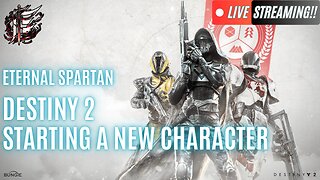 7:43:24
7:43:24
Eternal_Spartan
21 hours ago🟢 Eternal Spartan Plays Destiny 2 | FPS Friday | | USMC Veteran
56K4 -
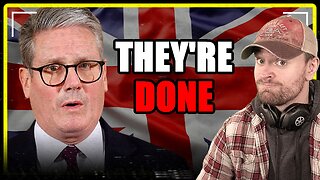 2:04:11
2:04:11
MattMorseTV
15 hours ago $27.06 earned🔴The UK just hit ROCK BOTTOM.🔴
83.9K202 -
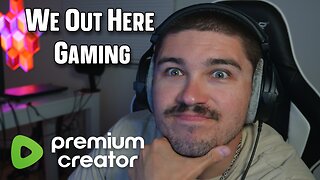 5:37:54
5:37:54
iCheapshot
13 hours ago $16.27 earnedBack From Vacation! | Checking Out Skate Maybe Some Boarderlands 4
72.4K1